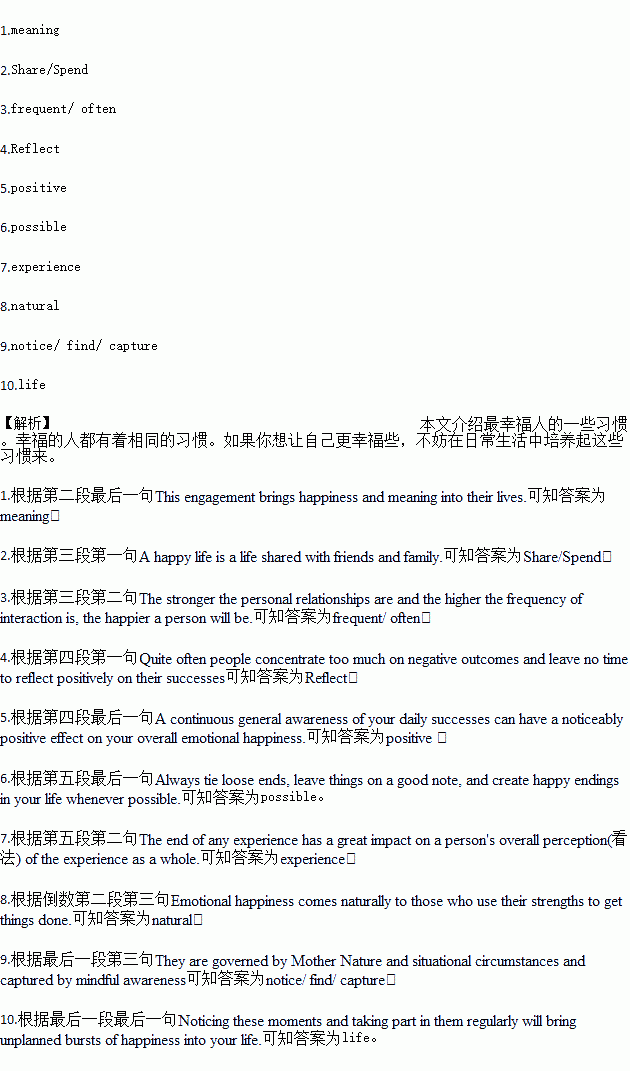题目内容
Shared habits of happy people
Happy people all share happy habits.It's as simple as that.The happiest people I know share these obvious habits.If you're looking to expand your general happiness, you may consider adopting these in your own life.
People may take an active role in their local city council, join a social club supporting causes they believe in, or find passion in their careers.In each case, the physiological outcome is the same.They engage in something they strongly believe in.This engagement brings happiness and meaning into their lives.
A happy life is a life shared with friends and family.The stronger the personal relationships are and the higher the frequency of interaction is, the happier a person will be.
Quite often people concentrate too much on negative outcomes and leave no time to reflect positively on their successes.It's natural for a person to want to correct undesirable circumstances and focus closely on doing so, but it is important to reflect mindfully on the good while striving diligently to correct the bad.A continuous general awareness of your daily successes can have a noticeably positive effect on your overall emotional happiness.
The power of endings is quite remarkable.The end of any experience has a great impact on a person's overall perception(看法) of the experience as a whole.Think about reading a well?written novel.Now imagine the ending is really poor.Even if the story was appealing until the ending, would you still be happy recommending the novel to a friend? People always remember the ending.If the ending is happy, the experience creates happiness.Always tie loose ends, leave things on a good note, and create happy endings in your life whenever possible.
Everyone possesses unique personal strengths.We all have different talents and skill sets.Emotional happiness comes naturally to those who use their strengths to get things done.The state of completion always creates a sense of achievement.If the achievement is based on your own personal ability to get the job done, the physiological rewards are priceless.
The best things in life are free.They come in the form of simple pleasures and they appear right in front of you at previous locations and arbitrary times.They are governed by Mother Nature and situational circumstances and captured by mindful awareness.It's all about taking a moment to notice the orange and pink sunset reflecting off the pond water as you hold hands with someone you love.Noticing these moments and taking part in them regularly will bring unplanned bursts of happiness into your life.
Shared habits | Explanations |
Be a part of something you believe in | If people are engaged in what they strongly believe in, it brings happiness and 1. into their lives. |
2. time with friends and family | If the personal relationships are stronger and the interaction is more 3., a person will be happier. |
4. on the good | If people often concentrate their attention on 5. outcomes, it will result in their overall emotional happiness. |
Create happy endings whenever 6. | If the ending is happy, the 7. will bring happiness to you. |
Use personal strengths to get things done | It is 8. that emotional happiness comes to those who use their personal strengths to get things done. |
Enjoy the natural joy of simple pleasures | If you are able to 9. the simple natural pleasures and enjoy them, it will bring unplanned bursts of happiness into your 10.. |


 fully. Look at them in the eye.
fully. Look at them in the eye.